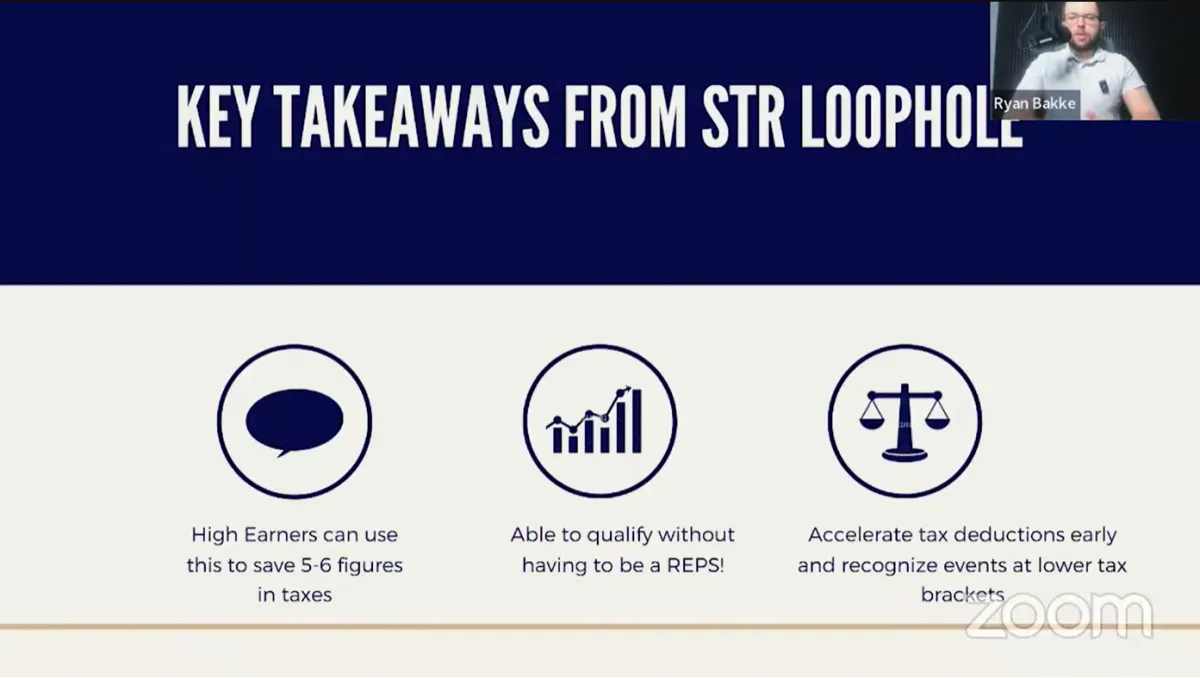Latest blogs and articles
Leading you to a better financial future.

Maximizing Tax Benefits with Cost Segregation Studies for Short-Term Rental Investors
Maximizing Tax Benefits with Cost Segregation Studies for Short-Term Rental Investors
For short-term rental investors, tax strategies play a pivotal role in maximizing profitability. One of the most powerful tools in this arsenal is the cost segregation study, which allows for accelerated depreciation deductions on your property. However, not every situation calls for a cost segregation study, and it’s important to evaluate whether this strategy makes sense for your unique circumstances.
What is a Cost Segregation Study?
A cost segregation study breaks down the components of your property (e.g., land, building, equipment) to accelerate depreciation deductions. This means that instead of depreciating your entire property over 27.5 years, you can accelerate depreciation on certain elements, such as appliances or flooring, which have a shorter life span. For short-term rental investors, this can lead to significant tax savings early in your investment.
Factors to Consider Before Doing a Cost Segregation Study
While cost segregation studies offer a valuable tax strategy, they are not always the right move for every investor. Here are some key factors to consider before moving forward:
1. Current vs. Future Tax Rate: If you're in a high tax bracket now and expect your rate to stay the same or decrease later, it's usually advantageous to take the depreciation now. Conversely, if you expect to be in a higher bracket in the future, it may be better to carry forward the depreciation for later years.
2. Purchase Price of the Property: The property’s purchase price plays a critical role in whether you should perform a cost segregation study. If your property was purchased for less than $500,000, a DIY or in-house study may be sufficient, but the potential tax savings may not justify the cost of a full study. For larger properties, the benefits increase significantly.
3. Land Value: High land value can reduce the tax advantages of a cost segregation study because land cannot be depreciated. If a large portion of your property’s purchase price is allocated to land, the benefits of the study may not be as compelling.
4. Plans to Sell the Property: If you're planning to sell the property soon, a cost segregation study may not be worth it. When you sell, you have to "recapture" the depreciation, meaning you pay taxes on the amount of depreciation you’ve claimed. This could force you into a 1031 exchange (which defers taxes by reinvesting in another property), but that might not always align with your investment strategy.
Bonus Depreciation and Timing
With bonus depreciation phasing out, it’s worth considering whether to lock in a cost segregation study now. Bonus depreciation allows investors to deduct a large percentage of the cost of certain property assets in the first year. Even if you're planning to hold the property for a few years, it’s better to accelerate those deductions while the option is available.
Cost Segregation and W-2 Income
One common question from real estate investors is whether a cost segregation study is beneficial if they have significant W-2 income. The answer is often yes, particularly if you're in a higher tax bracket (e.g., 24% or more). A cost segregation study allows you to take deductions that can offset your W-2 income, reducing your taxable income overall.
For example, if you're earning $150,000 and fall within the 24% bracket, taking depreciation deductions can reduce your tax bill by thousands of dollars. You can also pair a cost segregation study with other tax strategies, such as converting traditional IRAs to Roth IRAs, making it a tax-efficient year overall.
When NOT to Do a Cost Segregation Study
There are situations where a cost segregation study may not be beneficial. If you're in a low tax bracket now and expect to move into a higher bracket later, it might be more strategic to defer the depreciation. Additionally, if you're not able to take the loss against your income due to other limitations, the study might not make sense.
Finally, if your property has a high land value or if you're planning to sell soon and don't want to engage in a 1031 exchange, a cost segregation study may not be worthwhile. A cost segregation study can provide substantial tax savings for short-term rental investors, but it’s important to weigh the timing, property value, and future income prospects before moving forward. Done correctly, a cost segregation study can give you an interest-free loan from the government, allowing you to reinvest the savings for future growth. However, be sure to consult a tax advisor to determine if it aligns with your long-term investment goals.
Choose Your Journey to Tax Excellence
Journey 1
Building a Tax Advisory & Consulting Practice
Scale, streamline, and systemize your advisory business.
Turn compliance clients into year-round advisory opportunities while mastering operational efficiencies for sustainable growth. This track covers pricing, hiring, marketing, and client engagement essentials to help you build a practice you love.
WHAT YOU’LL LEARN:
Crafting solid engagement letters and pricing models.
Transforming compliance clients into year-round
partners.
Marketing
strategies that drive consistent growth.
Recruiting and training the right team to scale your business.
Bonus:A Power Checklist for the ultimate year-end tax planning session.
Journey 2
Tax and Legal Foundations: Core Strategies for All Levels
Master the fundamentals that drive financial success.
Perfect for business owners and advisors, this track delivers essential insights on asset protection, tax planning, estate strategies, and IRS compliance.
WHAT YOU’LL LEARN:
Unlock estate planning with Revocable Living Trusts.
Maximize retirement savings through Solo 401(k) plans.
Real estate strategies: Short-term, long-term, and self-rentals.
Learn asset protection that actually works.
Navigate IRS resolution with confidence and ease.
Journey 3
Advanced Insights: Unlock Complex Tax Strategies
Top-tier strategies for high-value clients.
Designed for experienced professionals, this track offers in-depth guidance on prime tax strategies, entity structuring, and payroll solutions. Gain the insights needed to handle complex business scenarios with confidence.
WHAT YOU’LL LEARN:
Report multi-entity structures with Forms 1065 & 1120S.
Maximize tax savings using Bonus Depreciation & Section 179.
Seamlessly relocate clients to tax-free states.
Navigate business sales and acquisitions smoothly.
Use 105 Plans to save clients on healthcare costs.

2024 Learn Like A CPA. All rights reserved.